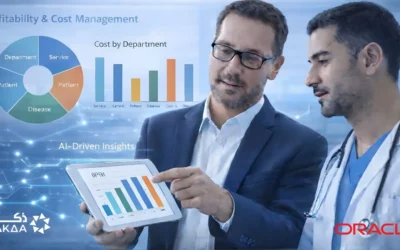Beyond Understanding, Taking Action: How You Can Get Involved in EPM
So, how does EPM impact you, specifically?
Ever wonder how your daily tasks contribute to the bigger picture of your organization’s success? Enter Enterprise Performance Management (EPM) – a powerful concept that goes beyond the realm of finance professionals and impacts everyone in the company.
Imagine EPM as the organization’s central nervous system, constantly monitoring performance, identifying opportunities, and guiding strategic decision-making. It’s not just about crunching numbers; it’s about leveraging data to drive efficiency, growth, and overall success.
So, how does EPM impact you, specifically? Let’s break down some key EPM concepts into clear, understandable language:
- Planning and Budgeting: EPM helps set realistic goals and allocate resources effectively. Whether you’re in sales, marketing, or operations, understanding your team’s budget and goals allows you to plan your activities strategically.
For Example: The marketing team might use EPM data to determine the budget for an upcoming campaign. They can then use this information to allocate resources for advertising, content creation, and other marketing activities.
- Performance Tracking and Analysis: EPM tracks progress towards goals and identifies areas for improvement. You don’t need to be a financial expert to understand key metrics relevant to your role. Regularly reviewing these metrics allows you to assess your performance and identify areas where you can optimize your work.
Imagine This: The sales team can use EPM data to track their progress towards monthly sales targets. This allows them to identify any lagging regions or products and adjust their strategies accordingly.
- Scenario Planning: EPM helps analyze the impact of different situations on the organization’s performance. This allows everyone to anticipate potential challenges and opportunities.
Consider This: The product development team might use EPM to model the impact of launching a new product line. This allows them to identify potential risks and opportunities associated with the launch.
Here’s the Takeaway: EPM provides valuable insights that benefit everyone in the organization, not just the finance department. By understanding how your role contributes to the overall goals and metrics tracked by EPM, you can become a more strategic and impactful contributor to your team’s success.
Beyond Understanding, Taking Action: How You Can Get Involved in EPM
Now that you grasp the core concepts of EPM, how can you actively participate and contribute to your organization’s performance? Here are some actionable steps:
- Embrace Transparency: Take the initiative to ask your manager or a finance team member to explain the key metrics relevant to your department and how they contribute to the organization’s overall goals. This fosters understanding and allows you to see how your work fits into the bigger picture.
- Think Strategically: When planning your daily tasks, consider how your activities contribute to achieving departmental and organizational goals. For instance, the sales team might use EPM data to identify which customer segments are most profitable. They can then adjust their sales strategies to focus on acquiring more customers from these profitable segments.
- Communicate Effectively: Share your progress and insights with your team and manager regularly. This fosters collaboration and helps the organization adjust strategies based on real-time information. For example, a product developer encountering unexpected technical challenges during the development process can communicate this to the project manager through EPM data and reports. This allows the manager to adjust timelines or resource allocation if necessary.
Your Role in Driving Performance
EPM can be a powerful tool for driving organizational success, but it requires everyone’s participation. The more everyone understands EPM concepts, the better equipped they are to contribute effectively.
What are your thoughts on the role of EPM in your organization? How can you leverage EPM data and insights to improve your daily work? Share your experiences and ideas in the comments below!





